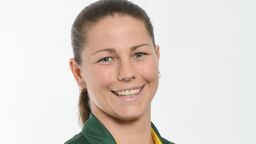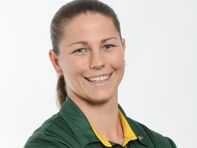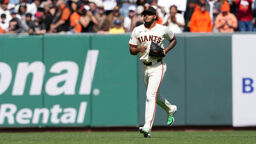Playing on an “gay” basketball team is a relatively new experience for Jay Mulucha. The point guard from Uganda is in Paris for the Gay Games to play with a team he called The Sisters, a group of athletes from around the world put together to compete for gold.
Mulucha, a trans man, is one of eight athletes from Uganda competing at the Gay Games in Paris, others participating in aquatics, volleyball and bowling. Many or all are here thanks to scholarships they received from Gay Games organizers, and other financial help that brought them to Paris, a city some could have never dreamed of visiting.
Standing outside the Stade Jean Bouin moments before the Gay Games 10 Opening Ceremony, Mulucha explained that homosexuality and transsexuality are considered imports from white society and abhorrent to African culture. Uganda has zero protections for members of the LGBTQ community. Same-sex sexual activity is punishable by life imprisonment.
“It’s not in our culture to be gay,” Mulucha explained. “[They believe] we are co-opting the white culture and taking it back to Africa. So the general society is so so homophobic.”
In fact it was white Europe’s anti-gay colonial laws from many decades ago that have led to some of the worst legal situations in the world for LGBTQ Africans. While Western Europe has cast aside many of those laws, Africa has clung to them, another sad chapter in the legacy of colonialism.
Mulucha was outed in 2010 when his university discovered he was part of the “gay community.” The school rescinded his basketball scholarship and cast him out.
“I lost it all,” he said of the episode eight years ago.
Since then he has started an LBTQ organization in Uganda, FEM Alliance Uganda, designed to help queer people who were assigned female at birth navigate the nation’s society. Mulucha said his organization works on health and legal issues on behalf of the community. One important aspect of his mission involves working behind the scenes with medical providers to offer honest health care to members of the LBTQ community, something he said is difficult to come by.
“You have to hide if you need those services. But we talk to health providers about the LBTQ community, and they open up about it.”
It has not been easy. In his eight years since being outed, Mulucha has experienced hardships he is quick to downplay. Talking with him in the sweltering heat last Saturday, it was inspiring to see the smile on his face, a brighter future in his eyes.
“There are several times I have been attacked and beaten. There are several times I have gone to a [jail] cell. But because of the solidarity ad the love we have for ourselves, we keep on moving. We know things are going go change.”
Mulucha said there are zero politicians in Uganda who are willing to make a positive public statement about members of the LGBTQ community. But it’s something he’s willing to live with as he works with people behind the scenes, better to have private supporters in office than those private supporters be publicly removed from office.
“If they support us publicly, they will lose their jobs and they will lose their families.”
Now Mulucha is using sports to build bridges. Back home in Uganda, he has created a gay basketball team that he has pushed to be included in a local league. The challenges have been severe. Progress in Uganda is having people simply being willing to talk with you about being gay, and not turning their backs and walking away at the utterance of the word.
In the sports world, taking the court to simply play a game as openly members of the LGBTQ community is a huge victory for Mulucha and the people on the team they have helped build.
“We are getting a lot of backlash and challenges,” he said. “They don’t want to associate with gay people in any way. But we force everything to happen. We have been beaten, things have been done, but we are still standing.”
You can find the FEM Alliance on Facebook or on Twitter @femauganda. Their Web site is at www.femalliance.org.







































